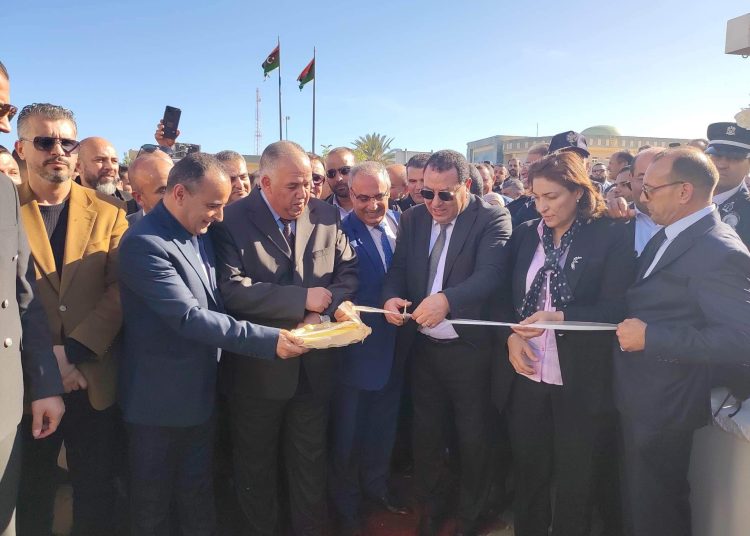The Director General of the Libyan Customs Authority, Major General Suleiman Ali Salem, received the new administrative buildings from the Ministry of Transport at the Libyan-Tunisian Ras Jdair land border crossing Thursday.
Salem, accompanied by the Director of Tunisian Customs, the Libyan Undersecretary of the Ministry of Transport, and the heads of the security services at the crossing, also opened the new additional crossing lanes at the border.
Seven new crossing lanes and four buildings were inaugurated, namely a customs building for passengers, another for buses, a housing building for customs members and a building for the Ports Management Centre.
Including old lanes, five lanes will be for passengers, two for bilateral trade and one for ambulances and diplomats. While the new lanes are technically ready, they have not been activated yet. A joint committee will be established between the customs authorities of the two countries to inspect passing passengers and trade unilaterally instead of two sides conducting two separate inspections. The aim is to reduce delay in traffic in both directions.
Increased trade, diversification, security and stability
The aim is to increase travel and trade between the two countries to help boost the Tunisian economy on one side and diversify the Libyan economy on the other. The move is also aimed at maintaining security and stability in both countries through better trade and the free movement of people.
Both countries see the existence of a complementarity between the two countries. For example, Libya is a high importer of many finished goods including foodstuffs and building materials, Tunisia is a manufacturer and exporter of many of these products. Many of these are already imported by Libya, but increased trade with neighbouring Tunisia, rather than a non-neighbouring country, would have the added security bonus for Libya of keeping Tunisia stable.











